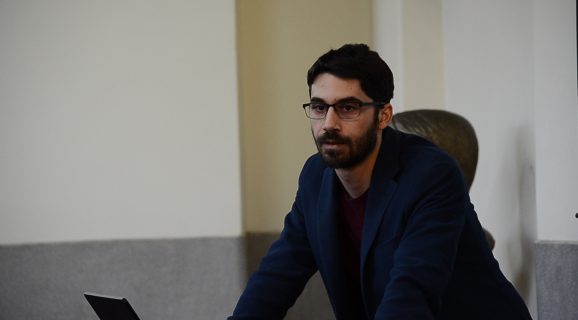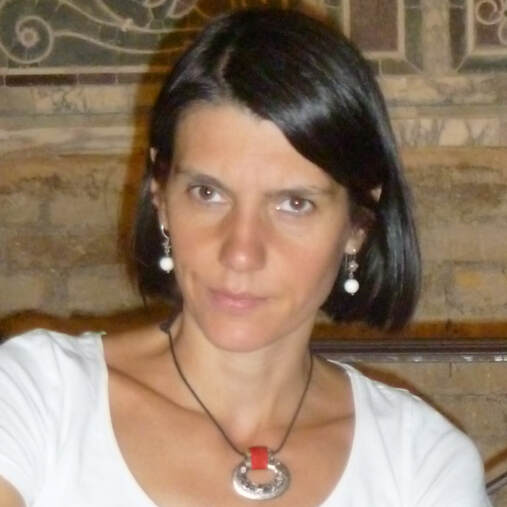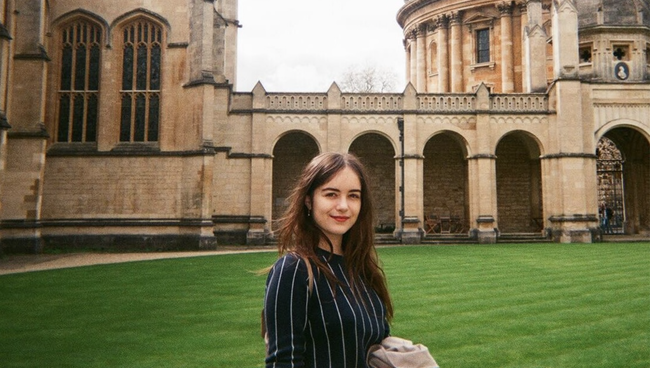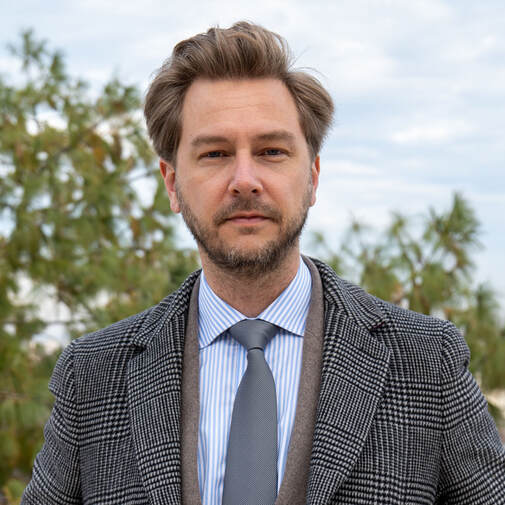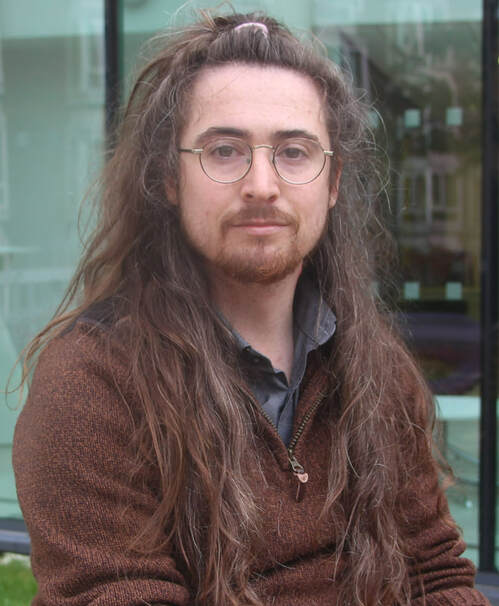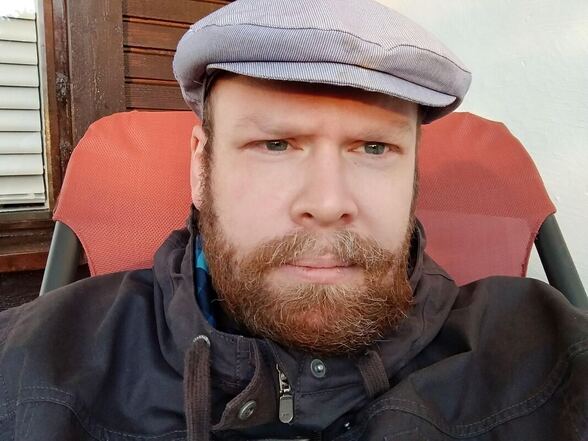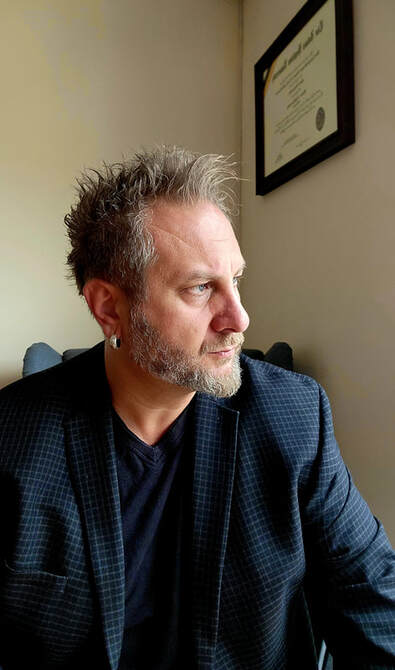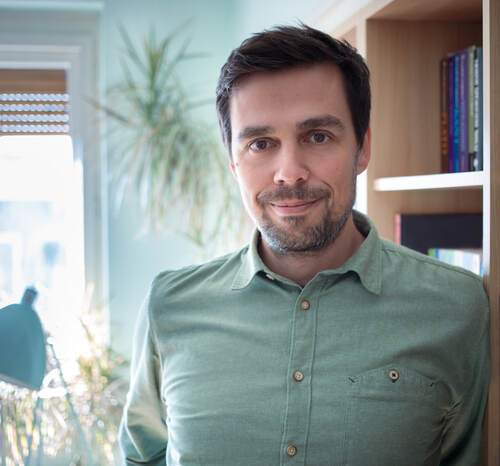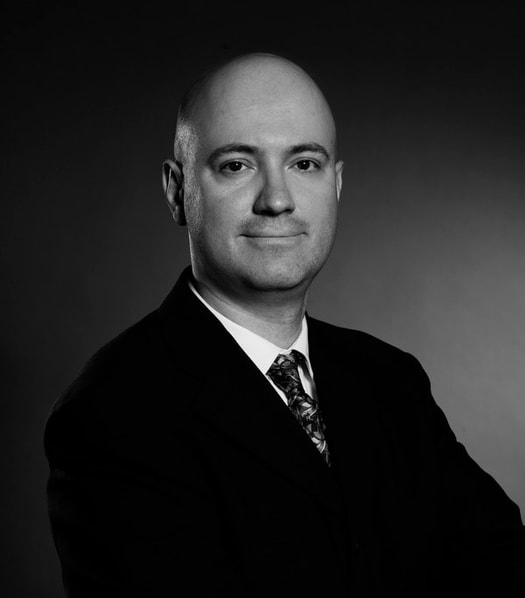|
Marcela Andokova
|
Assoc.-prof. Dr. Marcela Andoková works at the Department of Classical and Semitic Philology, Comenius University in Bratislava, Slovakia. Her research activities include classical and ancient Christian literature as well as ancient and contemporary rhetoric with the emphasis on political discourse in nowadays society. She is the author of several scholarly works and studies overlapping classical languages and patristic or biblical studies. At the same time, she has a long-term interest in the history of Latin education in the context of European schooling, especially issues related to bilingualism and the use of direct method in Latin language teaching. Her teaching activities focus on classical Latin and Medieval philology, as well as on the ancient Greek and Roman religion and civilization. |
|
Jane Cooper
|
Jane Cooper is an Examination Fellow of All Souls College, Oxford and a DPhil candidate at the University of Oxford in English. Her thesis focuses on sublime poetics and natural philosophy in England, 1650-1740. Her research interests include satire, heresy, and the reception of Lucretius in early modern Europe. |
|
David Lloyd Dusenbury
|
David Lloyd Dusenbury is a philosopher, historian of ideas, and senior fellow at Budapest's Danube Institute. He is also visiting professor at Eötvös Loránd University, and the author of Nemesius of Emesa on Human Nature, The Innocence of Pontius Pilate, and I Judge No One (all published by Oxford University Press). Last year, he held the Chair for Jewish-Christian Relations at the University of Antwerp. |
|
David Ellis
|
Dr. David Ellis is a lecturer of Philosophy, Ethics and Religion at Leeds Trinity University, and researches the overlap of religious language, belief and life from a Wittgensteinian perspective. He also has research interests in Linguistic Relativity and the role of philosophy in scientific research. |
|
Andrej Jevtić
|
Dr. Andrej Jeftić is the Director of the World Council of Churches’ Faith and Order Commission. He obtained his Ph.D. degree in theology at the Faculty of Orthodox Theology at the University of Belgrade where he taught as an assistant professor. He also worked as a research fellow at the Institute for Philosophy and Social Theory at the same university. His area of interest includes ecumenical theology, patristic theology and philosophy, systematic theology, contemporary Orthodox theology, and the science-theology relationship. |
|
Steve Fuller
|
Steve Fuller is Auguste Comte Professor of Social Epistemology at the University of Warwick, UK. Originally trained in history, philosophy and sociology of science, Fuller is best known for his foundational work in the field of ‘social epistemology’, which is the name of a quarterly journal he founded in 1987 as well as the first of his twenty-six books. His most recent research has focused on what he calls ‘Humanity 2.0’, which concerns the sustainability of ‘humanity’ as a concept in light of emerging ‘trans’ and ‘post-human’ tendencies in politics, society and culture. |
|
Jonathan Greig
|
Jonathan Greig is a senior postdoctoral fellow at KU Leuven, supported by the Research Foundation - Flanders (FWO), working on a project on the relation of substance (ousia) and sensible particulars in 4th- to 8th-century Byzantine Christian thinkers and the influence of pagan Neoplatonism in this relation (grant # 3H210442 . Jonathan completed his PhD on the first cause in late Neoplatonism (esp. Proclus and Damascius) at the LMU Munich in 2018, recently published as a monograph with Brill. He has since worked on topics related to metaphysics/logic, epistemology, and philosophy of religion in Neoplatonists and Byzantine theological/philosophical authors. |
|
Steffen Hope
|
Steffen Hope is currently a postdoctoral researcher at the Department of Archaeology, Conservation and History at the University of Oslo. His main research interests are the cult of saints, history-writing, identity-construction, and how these phenomena combine. He also works on fragments of medieval manuscripts, and is currently co-teaching a course on utopian thought in the Middle Ages. |
|
Pavle Stojanović
|
Pavle Stojanović is an Assistant Professor (Docent) of Philosophy at the University of Belgrade. His area of research so far has been in the philosophy of the Hellenistic period, in which he has published several papers. This is part of his broader interest in the questions pertaining to human knowledge and its limits. |
|
Miloš Vuletić
|
Miloš Vuletić is an Assistant Professor of Philosophy at the University of Belgrade's Department of Philosophy. His main areas of research are philosophy of perception, epistemology, and the history of Early Modern philosophy, with a special focus on topics that lie at their intersection. |
|
Milan Ćirković
|
Milan M. Ćirković is a senior Research Professor at the Astronomical Observatory of Belgrade, (Serbia). He obtained his PhD at the Dept. of Physics, State University of New York in Stony Brook in 2000 with the thesis in astrophysical cosmology. His primary research interests are in the fields of astrobiology (habitable zones, habitability of galaxies, SETI studies), philosophy of science (futures studies, philosophy of cosmology), and risk analysis (global catastrophes, observation selection effects, epistemology of risk). He co-edited the widely-cited anthology on Global Catastrophic Risks (Oxford University Press, 2008, with Nick Bostrom), wrote four research monographs (the latest being Cosmic Microwave Background: Philosophical and Historical Aspects, Cambridge University Press, Cambridge, 2024, with S. Perović), as well as five popular science/general nonfiction books, and authored about 200 research and professional papers. He is currently working on The Terrors of the Earth: Why We Ought to Leave this Planet – and Soon, to be published in 2025 by Penguin Random House. |

